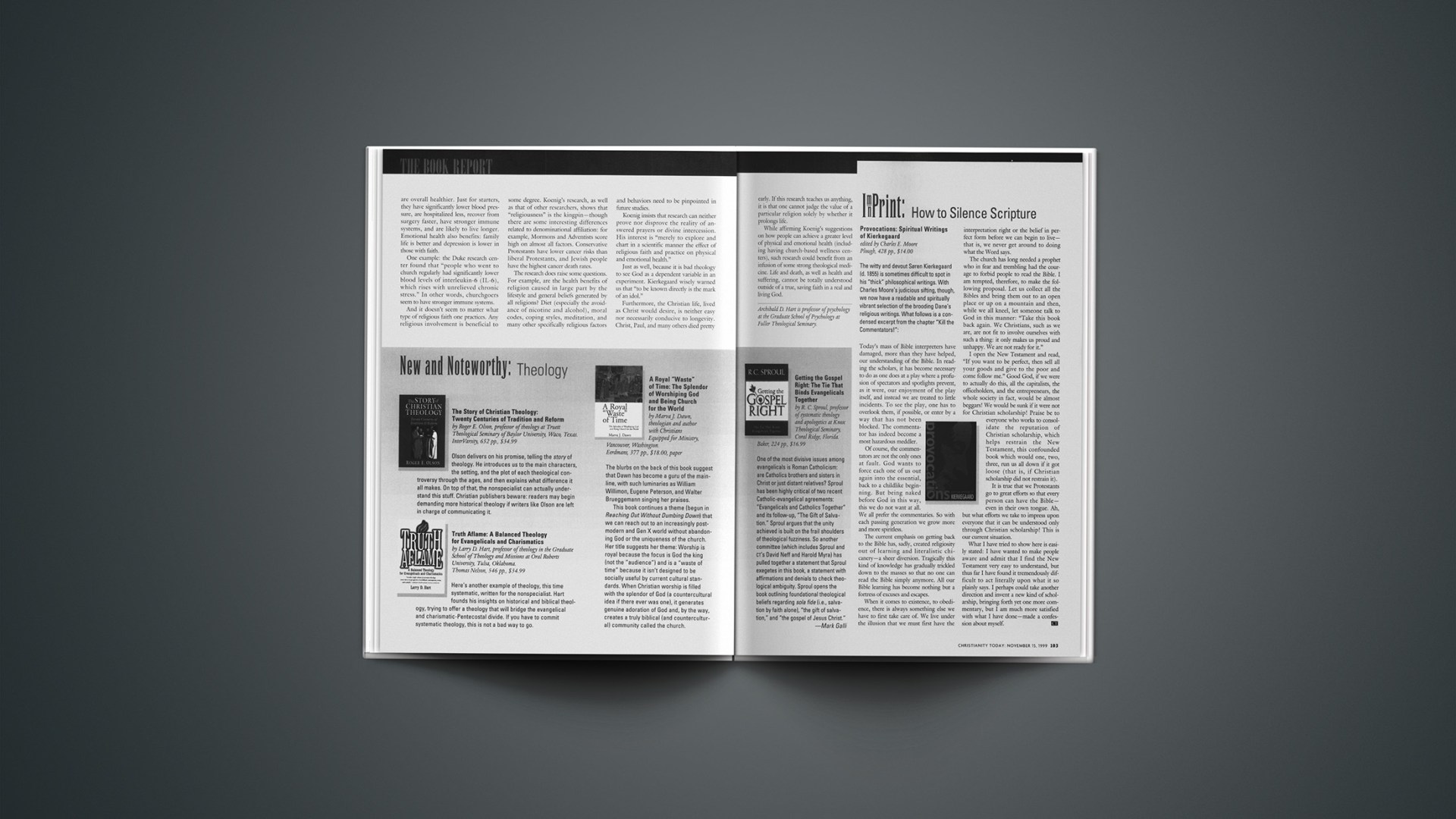Provocations: Spiritual Writings of Kierkegaard
edited by Charles E. MoorePlough, 428 pp., $14.00
The witty and devout Soren Kierkegaard (d. 1855) is sometimes difficult to spot in his “thick” philosophical writings. With Charles Moore’s judicious sifting, though, we now have a readable and spiritually vibrant selection of the brooding Dane’s religious writings. What follows is a condensed excerpt from the chapter “Kill the Commentators!”:
Today’s mass of Bible interpreters have damaged, more than they have helped, our understanding of the Bible. In reading the scholars, it has become necessary to do as one does at a play where a profusion of spectators and spotlights prevent, as it were, our enjoyment of the play itself, and instead we are treated to little incidents. To see the play, one has to overlook them, if possible, or enter by a way that has not been blocked. The commentator has indeed become a most hazardous meddler.
Of course, the commentators are not the only ones at fault. God wants to force each one of us out again into the essential, back to a childlike beginning. But being naked before God in this way, this we do not want at all. We all prefer the commentaries. So with each passing generation we grow more and more spiritless.
The current emphasis on getting back to the Bible has, sadly, created religiosity out of learning and literalistic chicanery—a sheer diversion. Tragically this kind of knowledge has gradually trickled down to the masses so that no one can read the Bible simply anymore. All our Bible learning has become nothing but a fortress of excuses and escapes.
When it comes to existence, to obedience, there is always something else we have to first take care of. We live under the illusion that we must first have the interpretation right or the belief in perfect form before we can begin to live—that is, we never get around to doing what the Word says.
The church has long needed a prophet who in fear and trembling had the courage to forbid people to read the Bible. I am tempted, therefore, to make the following proposal. Let us collect all the Bibles and bring them out to an open place or up on a mountain and then, while we all kneel, let someone talk to God in this manner: “Take this book back again. We Christians, such as we are, are not fit to involve ourselves with such a thing: it only makes us proud and unhappy. We are not ready for it.”
I open the New Testament and read, “If you want to be perfect, then sell all your goods and give to the poor and come follow me.” Good God, if we were to actually do this, all the capitalists, the officeholders, and the entrepreneurs, the whole society in fact, would be almost beggars! We would be sunk if it were not for Christian scholarship! Praise be to everyone who works to consolidate the reputation of Christian scholarship, which helps restrain the New Testament, this confounded book which would one, two, three, run us all down if it got loose (that is, if Christian scholarship did not restrain it).
It is true that we Protestants go to great efforts so that every person can have the Bible—even in their own tongue. Ah, but what efforts we take to impress upon everyone that it can be understood only through Christian scholarship! This is our current situation.
What I have tried to show here is easily stated: I have wanted to make people aware and admit that I find the New Testament very easy to understand, but thus far I have found it tremendously difficult to act literally upon what it so plainly says. I perhaps could take another direction and invent a new kind of scholarship, bringing forth yet one more commentary, but I am much more satisfied with what I have done—made a confession about myself.
Copyright © 1999 Christianity Today. Click for reprint information.










